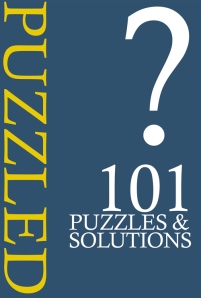Answer: Do Richard Wiseman’s 101 puzzles:
from Richard Wiseman’s website:
101 Friday puzzles!
Every Friday on my blog I present a puzzle, challenge people to try to solve it over the weekend, and then post the answer on the following Monday. I avoid cryptic crosswords and number grids, and instead focus on the type of quirky puzzles that are likely to produce that rare but satisfying ‘a-ha’ moment.
The Friday Puzzle has attracted a large and loyal following, with people frequently arguing about the best way to tackle the various problems, and often coming up with new and ingenious answers.
Here are 101 of my favourite Friday Puzzles. If you are stumped, or want to check your answers, I have produced an ebook containing 101 of the previous Friday Puzzles! It is called PUZZLED and is available for the Kindle (UK here and USA here) and on the iBookstore (UK here in the USA here).

